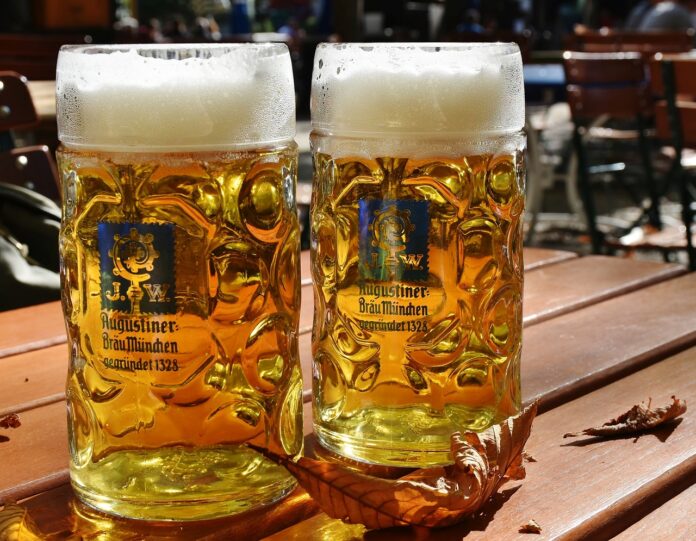Oktoberfest is not only a celebration of beer and Bavarian culture, but also a major global event with a rich history. From its royal origins to its status as the world’s largest folk festival, Oktoberfest has evolved into a beloved tradition. While it’s filled with fun, food, and beer, the festival also has its share of accidents, tragedies, and controversies, making it a complex and multifaceted event.
Interesting Facts
- Oktoberfest Actually Starts in September:
Although it’s called Oktoberfest, the festival begins in mid-September and runs until the first Sunday in October. The reason for this shift is to take advantage of the milder September weather. - Historical Origins:
Oktoberfest began in 1810 as a celebration of the marriage between Crown Prince Ludwig (later King Ludwig I of Bavaria) and Princess Therese of Saxe-Hildburghausen. The citizens of Munich were invited to a grand horse race, and the tradition continued annually, evolving into the beer-centric festival known today. - Massive Beer Consumption:
On average, around 7 million liters (1.85 million gallons) of beer are consumed during Oktoberfest. The beer is specially brewed by Munich’s six major breweries and served in one-liter mugs called Maßkrüge. - Giant Festival Grounds:
Oktoberfest takes place in Theresienwiese, a sprawling 420,000-square-meter area in Munich, Germany. The grounds host massive beer tents, amusement rides, food stands, and traditional German music performances. - Traditional Bavarian Clothing:
Visitors and locals alike often dress in traditional Bavarian clothing. Men wear lederhosen (leather shorts with suspenders), and women wear dirndls, traditional dresses with aprons. This adds to the authentic atmosphere of the festival. - Strong Beer Laws:
Only beer brewed within the city limits of Munich and conforming to the Reinheitsgebot (the German Beer Purity Law) can be served at Oktoberfest. This ensures that the beer is made using only water, barley, and hops. - Lost & Found Numbers Are Huge:
Each year, thousands of items are turned in to the festival’s lost and found office. Commonly lost items include passports, phones, wallets, and keys, but over the years, odd items like wheelchairs, dentures, and even a wedding ring have been found! - Family-Friendly Days:
While the festival is often associated with drinking, there are dedicated family days where rides and food are discounted, and the overall atmosphere is more child-friendly. There are also quieter beer tents where traditional folk music is played, making the festival accessible to people of all ages. - Largest Folk Festival in the World:
With over 6 million visitors each year, Oktoberfest is considered the largest folk festival in the world. People come from all over the globe to participate in the festivities, with significant numbers of tourists from the USA, Italy, and Australia. - O’zapft is!:
The opening ceremony begins with the mayor of Munich tapping the first keg and shouting, “O’zapft is!” which means “It is tapped!” This moment signals the official start of the beer pouring. - The Munich Oktoberfest Bombing (1980):
One of the most tragic incidents in Oktoberfest history occurred on September 26, 1980. A right-wing extremist named Gundolf Köhler detonated a bomb near the festival’s main entrance, killing 13 people and injuring over 200. This act of terrorism shocked Germany and remains the deadliest attack on the festival. - The “Bierleichen” (Beer Corpses):
The term Bierleichen, meaning “beer corpses,” is used to describe individuals who drink to the point of unconsciousness. These people are often found passed out around the festival grounds, and special medical teams are on hand to deal with them. Over 700 people are treated for alcohol poisoning each year. - Controversy Over Rising Prices:
The price of beer at Oktoberfest has risen significantly over the years, with the average price for a liter of beer (Maß) now around €13-14. This has led to complaints that the festival is becoming too expensive for locals, as it increasingly caters to wealthy tourists. - Tent Fires:
In the early years of Oktoberfest, fires in the beer tents were a common hazard due to open flames and wooden structures. Although modern safety regulations have greatly reduced the risk, there have still been incidents, such as a fire in 2002 in one of the beer tents, which fortunately was contained without serious injury. - Fake Oktoberfest Events:
Due to its global popularity, many countries host their own Oktoberfest celebrations. While this spreads Bavarian culture, some of these events have been criticized for being “commercialized” and not staying true to the traditional roots of the festival. Some organizers have even faced lawsuits for misrepresenting their events as authentic Oktoberfests.
